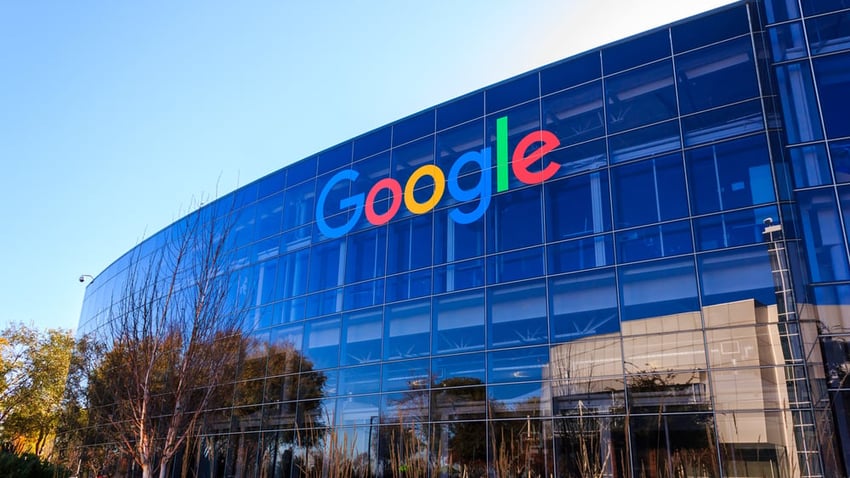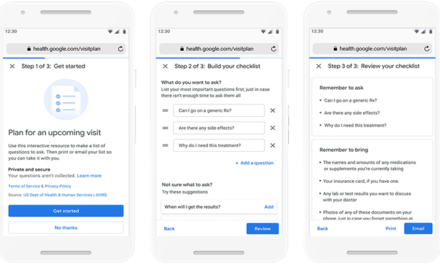Medical group Desert Oasis Healthcare has jumped on board to pilot Google Health’s clinical software Care Studio.
It marks Google Health’s third provider partnership, and its first outpatient collaboration, for its clinician-facing search tool that harmonizes healthcare data from different sources.
Starting next year, a small number of Desert Oasis Healthcare clinicians will test out Care Studio’s search and summarization capabilities that leverage artificial intelligence to bring context to physicians’ clinical notes. The plan is to gradually expand the technology to more users over time, the organizations told Fierce Healthcare in an exclusive interview this week.
“This is really impressive technology. We are kind of geeked to work with Google on this shared mission,” Brian Hodgkins, Pharm.D., executive vice president of clinical operations and ACO at Desert Oasis Healthcare said in an interview. “We honestly expect this to be a game changer for healthcare.”
Care Studio was born out of Google’s partnership with Ascension to pilot an electronic health record search tool that pulls patient electronic health records into an interface to help clinicians more easily find useful information. In February 2021, Beth Israel Deaconess Medical Center also signed on to pilot the clinical search tool, since named Care Studio.
At the ViVE 2022 conference in March, Google Health unveiled a new feature, called Conditions, that uses natural language processing (NLP) to provide physicians with a dynamic list of conditions pulled from the patient record plus related information including medications, labs, vitals and notes.
Also last spring Google Health announced a partnership with Meditech, marking Care Studio’s first integration with an electronic health record vendor.
Desert Oasis Healthcare, part of the Heritage Provider Network, is a network of primary and specialty care providers that provide primary care, immediate care, home health, palliative care, clinical research studies and other services to more than 60,000 members and patients living in the greater Coachella Valley and the Morongo Basin of Riverside and San Bernardino counties in Southern California.
The organization is comprised of about 110 primary care providers and 350 specialists.
DOHC serves a population with complex medical histories, often managing chronic conditions. The medical group takes a preventive approach to care, but data fragmentation and information silos make this challenging, according to Hodgkins. Oftentimes, clinicians have to comb through different systems to understand a patient’s medical history to prepare for their visits.
Google Health’s Care Studio technology will give DOHC clinicians a more complete picture of a patient’s history all in one place, according to Paul Muret, vice president and general manager of Care Studio at Google Health.
For Google, the partnership provides the tech giant’s healthcare division an opportunity to explore the use of its technology in a value-based care setting, Muret said.
“Desert Oasis Healthcare is a value-based primary care organization focused on annual wellness and care coordination and they have a large Medicare Advantage program. What’s exciting about that is they are looking to take care of patients in a much more holistic way to really help keep them healthy. To do that, they really need comprehensive and deep information about each patient so they can really see the conditions and issues and things that are going on with each patient,” he said.
Muret added, “It really lines up nicely with our ability to organize information that’s both structured and unstructured and look across different systems and summarize that in ways that is really effective for clinicians. We’re very excited to work with them and we think it’s a great match.”
Muret stressed that the patient information shared with Google Health by DOHC and its providers is protected by HIPAA (The Health Insurance Portability and Accountability Act) and covered under a business associate agreement between the parties. The data shared with Google Health to provide Care Studio will be used solely to provide Care Studio services to DOHC.
Google will not use patient data for advertising, nor will we sell patient data, he said.
The medical group plans to pilot Care Studio in its Wellness Clinic, which provides a yearly comprehensive clinical assessment for senior patients including lab work and evaluation of chronic conditions to develop a preventive care plan. About 15,000 of DOHC’s 30,000 senior patients utilize these services.
During these wellness visits, care teams need to quickly get up to speed on a patient’s history and easily see what’s happened with a patient since their last visit. And even with the right data, it can be difficult for care providers to make sense of the most relevant information, Hodgkins said.
“I have 12 providers doing this service. They see 15,000 people and they do a great job, but I have 30,000 seniors and I would like to put them all through this process. In order to do that we have to find some efficiencies in the way that we work. We believe that Care Studio represents the smart solution for our smart clinicians. Google Health’s technology can find the proverbial needle in the haystack of medical information,” he said.
With Care Studio, Google Health is bringing to bear its medically-tuned search capabilities including the ability to search through scanned documents, faxes and PDFs. The software’s Conditions feature provides a concise summary of a patient’s medical conditions, along with context and related information, including labs, medications and reports to help clinicians manage and treat conditions, according to Google Health.
Care Studio’s ability to harmonize data quickly and extract meaning out of clinical data can help primary care clinicians provide care more efficiently, Hodgkins said.
“It’s about providing good care. In primary care, it’s time-consuming. Our population is aged. We have vast differences in socioeconomic status. They have a high burden of disease,” he said. “We have to be able to manage this complex population in the midst of a PCP (primary care provider) shortage. Physicians spend time researching patients trying to find information that’s really hidden from them in this huge data warehouse known as PHI (protected health information). If we can put that information in front of the physician, make it more accessible, it makes them work smarter, makes the patient feel more comfortable and the outcomes necessarily are going to be better.”
Hodgkins is bullish on the potential of Google’s tech expertise to improve healthcare in partnership with providers. “We can do things Google cannot do. And Google can do things we can’t do. But together we expect to do great things,” he said. ” This collaborative relationship is one between our pioneering compassionate healthcare organization and this iconic, innovative technology company that literally has changed the way we interpret the world.”
The long-term plan, according to Hodgkins, is to roll out Care Studio across the entire Heritage Provider Network of primary care doctors serving nearly 700,000 patients in California.
Google and its first health system partner, Ascension, faced widespread criticism back in 2019 after news broke about a patient data-sharing arrangement between the two organizations. Google and Ascension both faced significant blowback, including scrutiny from regulators and lawmakers, following news that Google was collecting personal health information on millions of Americans as part of a partnership with the health system.
Controversy swirled around one key aspect of the partnership to pilot an EHR search tool that pulls patient electronic health records into an interface to help clinicians more easily find useful information.
But Google Health has since signed on BIDMC as another major pilot partner and an integration with EHR vendor Meditech.
Desert Oasis Healthcare has a history of working with innovative technology partners, Hodgkins said, and the organization feels confident about Google’s approach to data privacy and security.
“Protected health information, in our eyes, is sacred. Everything that we do is predicated on making sure we’re protecting patients’ health information. We’ve never worked with a company that’s been so dedicated to the same mission. We feel very comfortable that the PHI that we’re sharing through our business associate agreement and in the cloud-based algorithms that we’ll be using that our patients’ PHI is safe and protected,” he said.





